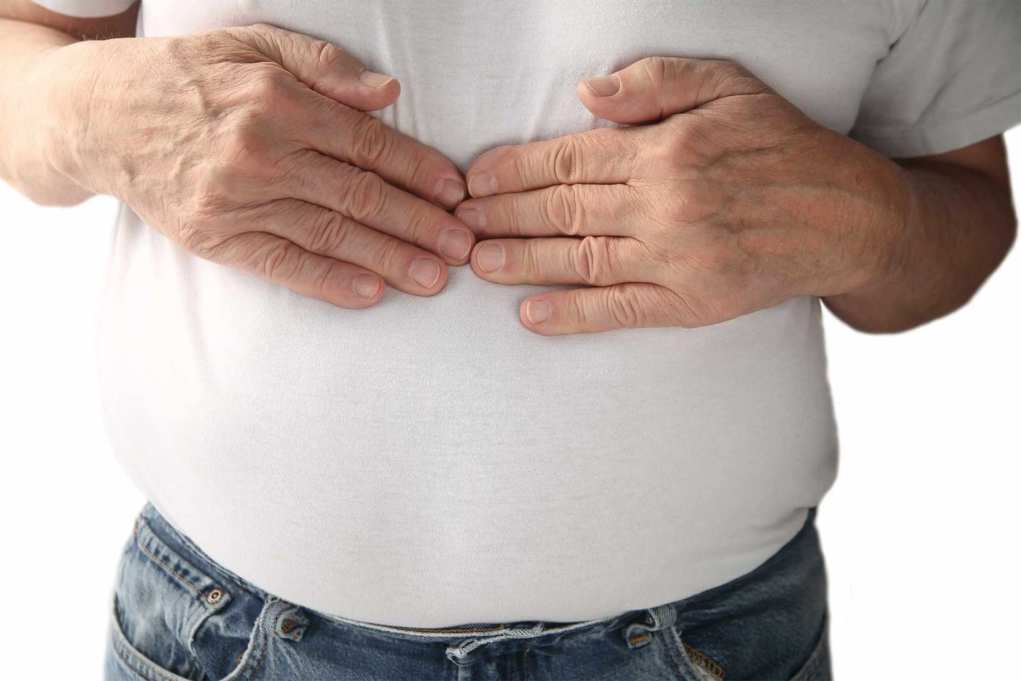
Bloating, burping, and passing gas are natural and are usually caused by swallowed air or the breakdown of food through digestion. You may experience gas and gas pains only occasionally or repeatedly in a single day. When gas and gas pains interfere with your daily activities, there may be something wrong. Find out how to reduce or avoid gas and gas pains, and when you may need to see your doctor.
Bloating: Gas Buildup In Your Stomach And Intestines
When gas doesn’t pass through belching or flatulence, it can build up in the stomach and intestines and lead to bloating. With bloating, you may also have abdominal pain that can vary from mild and dull to sharp and intense. Passing gas or having a bowel movement may relieve the pain.
Bloating may be related to:
- Eating fatty foods, which can delay stomach emptying and make you feel uncomfortably full
- Drinking carbonated beverages or eating gassy foods
- Eating too quickly, drinking through a straw, chewing gum, or sucking on candies, results in swallowing air
- Stress or anxiety
- Smoking
- A gastrointestinal infection, blockage, or disease
- Irritable bowel syndrome, a condition characterized by abdominal pain or cramping and changes in bowel function
- Conditions such as celiac disease or lactose intolerance in which the intestines aren’t able to digest and absorb certain components of food
To reduce bloating, it may help to avoid or reduce the amount of gas-producing foods you eat. Many carbohydrates cause gas, and the following items are common culprits:
- Beans
- Broccoli
- Brussels sprouts
- Cabbage
- Carbonated drinks
- Cauliflower
- Chewing gum
- Fruits, such as apples, peaches, and pears
- Hard candy
- Lettuce
- Milk and milk products
- Onions
- Sugar alcohols found in sugar-free foods (sorbitol, mannitol, and xylitol)
- Whole-grain foods
Belching: Getting Rid Of Excess Air
Belching or burping is your body’s way of expelling excess air from your stomach. It’s a normal reflex caused by swallowing air. You may swallow excess air if you eat or drink too fast, talk while you eat, chew gum or suck on hard candies, drink carbonated beverages, or smoke.
Acid reflux or gastroesophageal reflux disease (GERD) can have the same effect. If stomach acid backs up into your esophagus, you may swallow repeatedly to clear the material. This can lead to swallowing more air and further belching.
Some people swallow air as a nervous habit — even when they’re not eating or drinking. In other cases, chronic belching may be related to inflammation of the stomach lining (gastritis) or to an infection with Helicobacter pylori, the bacteria responsible for some stomach ulcers.
You can reduce belching if you:
- Eat and drink slowly. Taking your time can help you swallow less air.
- Avoid carbonated drinks and beer. They release carbon dioxide gas.
- Skip the gum and hard candy. When you chew gum or suck on hard candy, you swallow more often than normal. Part of what you’re swallowing is air.
- Don’t smoke. When you inhale smoke, you also inhale and swallow air.
- Check your dentures. Poorly fitting dentures can cause you to swallow excess air when you eat and drink.
- Treat heartburn. For occasional, mild heartburn, over-the-counter antacids or other remedies may be helpful. GERD may require prescription-strength medication or other treatments.
Bloating, Belching, And Intestinal Gas: How To Avoid Them
Bloating, belching, gas, and gas pains can be embarrassing and uncomfortable. Here’s what causes these signs and symptoms — and how you can prevent them.
Making lifestyle changes may help reduce or relieve excess gas and gas pain:
- Try smaller portions. Many of the foods that can cause gas are part of a healthy diet. So, try eating smaller portions of problem foods to see if your body can handle a smaller portion without creating excess gas.
- Eat slowly, chew your food thoroughly, and don’t gulp. If you have a hard time slowing down, put down your fork between each bite.
- Avoid chewing gum, sucking on hard candies, and drinking through a straw. These activities can cause you to swallow more air.
- Check your dentures. Poorly fitting dentures can cause you to swallow excess air when you eat and drink.
- Don’t smoke. Cigarette smoking can increase the amount of air you swallow.
- Exercise. Physical activity may help move gas through the digestive tract.
If the odor from passing gas concerns you, limiting foods high in sulfur-containing compounds — such as broccoli, Brussels sprouts, or other cruciferous vegetables, beer, and foods high in protein — may reduce distinctive odors. Pads, underwear, and cushions containing charcoal also may help absorb unpleasant odors from passing gas.
Important Notice: This article was originally published at https://newsnetwork.mayoclinic.org by Dana Sparkswhere all credits are due.
Disclaimer
The watching, interacting, and participation of any kind with anything on this page does not constitute or initiate a doctor-patient relationship with Dr. Farrah®. None of the statements here have been evaluated by the Food and Drug Administration (FDA). The products of Dr. Farrah® are not intended to diagnose, treat, cure, or prevent any disease. The information being provided should only be considered for education and entertainment purposes only. If you feel that anything you see or hear may be of value to you on this page or on any other medium of any kind associated with, showing, or quoting anything relating to Dr. Farrah® in any way at any time, you are encouraged to and agree to consult with a licensed healthcare professional in your area to discuss it. If you feel that you’re having a healthcare emergency, seek medical attention immediately. The views expressed here are simply either the views and opinions of Dr. Farrah® or others appearing and are protected under the first amendment.
Dr. Farrah® is a highly experienced Licensed Medical Doctor certified in evidence-based clinical nutrition, not some enthusiast, formulator, or medium promoting the wild and unrestrained use of nutrition products for health issues without clinical experience and scientific evidence of therapeutic benefit. Dr. Farrah® has personally and keenly studied everything she recommends, and more importantly, she’s closely observed the reactions and results in a clinical setting countless times over the course of her career involving the treatment of over 150,000 patients.
Dr. Farrah® promotes evidence-based natural approaches to health, which means integrating her individual scientific and clinical expertise with the best available external clinical evidence from systematic research. By individual clinical expertise, I refer to the proficiency and judgment that individual clinicians acquire through clinical experience and clinical practice.
Dr. Farrah® does not make any representation or warranties with respect to the accuracy, applicability, fitness, or completeness of any multimedia content provided. Dr. Farrah® does not warrant the performance, effectiveness, or applicability of any sites listed, linked, or referenced to, in, or by any multimedia content.
To be clear, the multimedia content is not intended to be a substitute for professional medical advice, diagnosis, or treatment. Always seek the advice of your physician or other qualified health providers with any questions you may have regarding a medical condition. Never disregard professional medical advice or delay in seeking it because of something you have read or seen in any website, video, image, or media of any kind. Dr. Farrah® hereby disclaims any and all liability to any party for any direct, indirect, implied, punitive, special, incidental, or other consequential damages arising directly or indirectly from any use of the content, which is provided as is, and without warranties.








